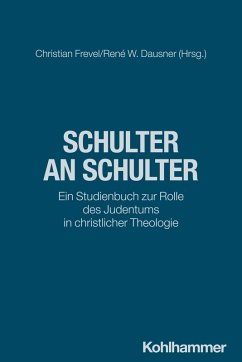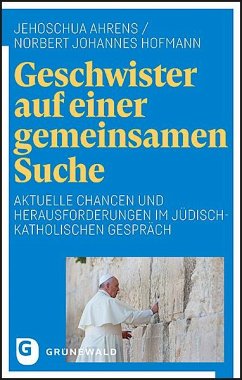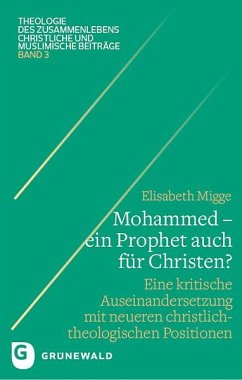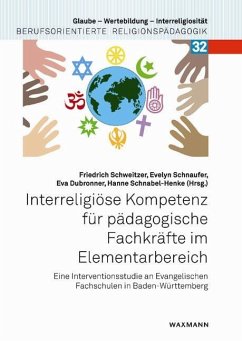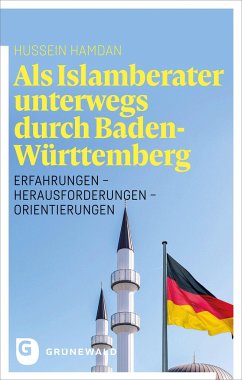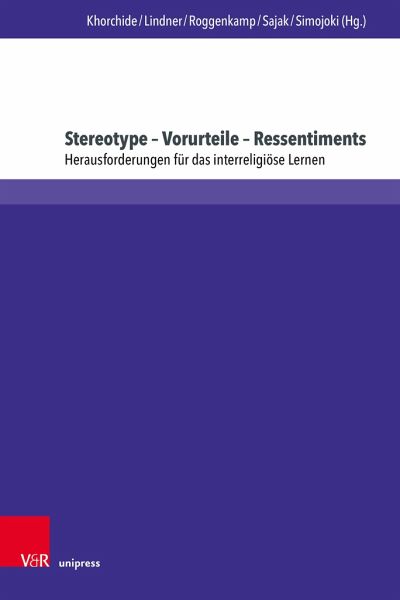
Stereotype - Vorurteile - Ressentiments
Herausforderungen für das interreligiöse Lernen
Herausgegeben: Sajak, Clauß Peter; Lindner, Konstantin; Roggenkamp, Antje; Khorchide, Mouhanad; Simojoki, Henrik;Mitarbeit: Lindner, Konstantin; Roggenkamp, Antje; Khorchide, Mouhanad; Pickel, Gert; Bernst
Versandkostenfrei!
Versandfertig in 2-4 Wochen
49,00 €
inkl. MwSt.

PAYBACK Punkte
0 °P sammeln!
Die Kooperation von Menschen jüdischen, christlichen und muslimischen Glaubens mit dem Ziel interreligiöser Bildung kann nur gelingen, wenn zuvor die alltäglichen und typischen Vorurteile, Stereotypen und Ressentiments thematisiert und in einen produktiven Lernprozess überführt werden. Der Sammelband beschäftigt sich aus unterschiedlichen theologischen und soziologischen Blickwinkeln mit den Einstellungen, Haltungen und Dispositionen von Lehrenden wie Lernenden in Schule und Hochschule. Die hier versammelten Autorinnen und Autoren liefern Forschungsergebnisse aus ganz unterschiedlichen D...
Die Kooperation von Menschen jüdischen, christlichen und muslimischen Glaubens mit dem Ziel interreligiöser Bildung kann nur gelingen, wenn zuvor die alltäglichen und typischen Vorurteile, Stereotypen und Ressentiments thematisiert und in einen produktiven Lernprozess überführt werden. Der Sammelband beschäftigt sich aus unterschiedlichen theologischen und soziologischen Blickwinkeln mit den Einstellungen, Haltungen und Dispositionen von Lehrenden wie Lernenden in Schule und Hochschule. Die hier versammelten Autorinnen und Autoren liefern Forschungsergebnisse aus ganz unterschiedlichen Disziplinen und Kontexten, um damit die Grundlage für eine religionskooperative Bildung in Schule und Hochschule zu legen.
The collaboration of Jews, Christians and Muslims with the aim of interreligious education can only succeed when both every day and typical prejudices, stereotypes and resentments are thematised and transferred into a productive educational process. This volume focuses on the positions and dispositions of teachers, scholars and students in schools and universities from various theological and sociological perspectives. The authors provide research findings from various disciplines and contexts. Thus, they lay the foundation for a religious-cooperative education in schools and universities.
The collaboration of Jews, Christians and Muslims with the aim of interreligious education can only succeed when both every day and typical prejudices, stereotypes and resentments are thematised and transferred into a productive educational process. This volume focuses on the positions and dispositions of teachers, scholars and students in schools and universities from various theological and sociological perspectives. The authors provide research findings from various disciplines and contexts. Thus, they lay the foundation for a religious-cooperative education in schools and universities.
Dieser Artikel kann nur an eine deutsche Lieferadresse ausgeliefert werden.






